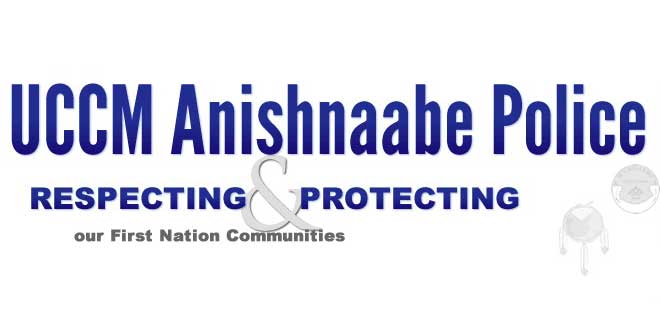MANITOULIN ISLAND—The UCCM Anishnaabe Police has implemented a vulnerable persons registry for the United Chiefs and Councils of Mnidoo Mnising (UCCMM) and Manitoulin Island area. As part of their on going commitment to community based policing practices and aligning with Safer Ontario Communities, Ontario Mental Health and Policing Strategy, the UCCM Anishnaabe Police Service and its policing partners will be implementing the Voluntary Vulnerable Person Registry.
The voluntary vulnerable person registry offers persons with in the UCCMM and Manitoulin Island area with cognitive, physical, developmental or intellectual issues to join the new registry which assists police and other emergency services in providing a coordinated and/or modified response when a vulnerable person goes missing, is susceptible to misadventure or is at increased risk in a crisis situation.
The UCCM Anishnaabe Police Services Social Navigator Initiative is the administrative body for the registry. The social navigator initiative works to address high risk situations where mental health, addictions or other socio-economic factors are present and to build bridges between police and community.
The goal of this program is to provide enforcement and other emergency personnel with an additional tool that has the potential to improve the lives of people who are vulnerable and increase positive policing outcomes.
“This is a new program,” UCCM Police Chief Rodney Nahwegahbow told the Recorder last Friday. “I’m really excited about it myself.”
“We have been trying to build a healthy connection with the community, and in situations where someone maybe suffering from a mental health problem, dementia, or addictions for example, it can be hard to manage from a policing perspective in a situation and it could be hazardous,” said Police Chief Nahwegahbow. “This program provides improved tools for enforcement agencies and others. For instance someone with dementia may not look like they need assistance but if we have a photograph and information relating to this person on the voluntary vulnerable person registry we can provide assistance for instance if they are found in a place they would not be by themselves, for instance a hiking trail. If someone who is on the registry is bipolar or schizophrenic, we as the police can change our approach in encountering them.”
“It all becomes a matter of modifying our approach,” said Police Chief Nahwegahbow. “With an aging population and more cases of dementia, for example, we felt that we needed to put this type of program in place to do something about it while meeting the needs of the community. Prevention and being proactive is where this should be.” He stressed this is a voluntary vulnerable person registry and those on the registry would need to sign up, voluntarily. “We are working on protocols with other police and ambulance services to get buy in and we are sure this will be the case.”
It is recognized that community partners play a vital role in reaching this target group population and that, according to best practices, such community based policing initiatives are delivered within varying model components in order to maximize success through positive community outcomes.
An information session and launch of the program will take place March 22 at the UCCM Anishnaabe Police Service in M’Chigeeng.
For more information on this program or to book an information session in your community please contact Daughness Migwans, UCCM Police Social Navigator at 705-377-7135.





